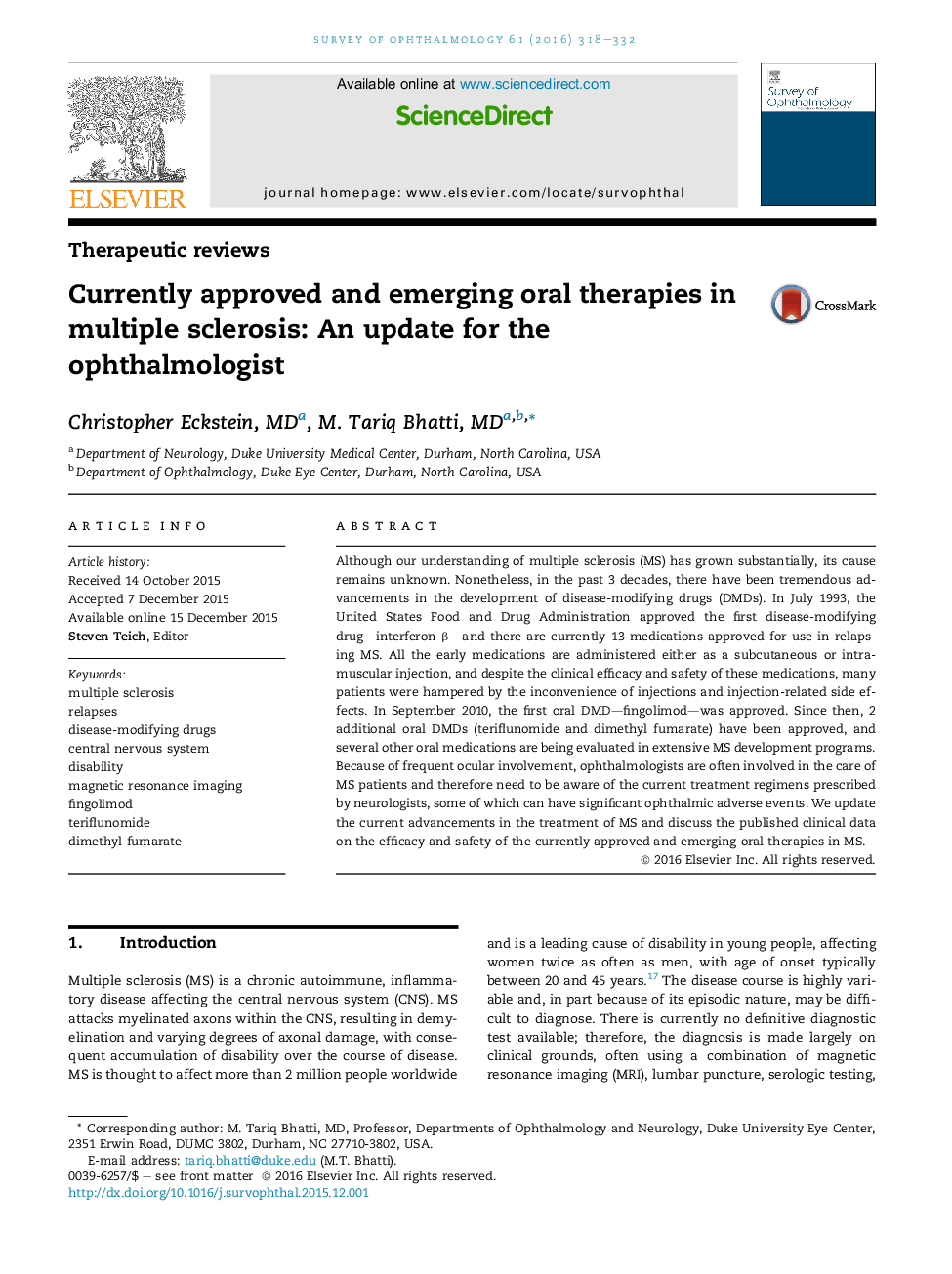| Article ID | Journal | Published Year | Pages | File Type |
|---|---|---|---|---|
| 4032412 | Survey of Ophthalmology | 2016 | 15 Pages |
Although our understanding of multiple sclerosis (MS) has grown substantially, its cause remains unknown. Nonetheless, in the past 3 decades, there have been tremendous advancements in the development of disease-modifying drugs (DMDs). In July 1993, the United States Food and Drug Administration approved the first disease-modifying drug—interferon β– and there are currently 13 medications approved for use in relapsing MS. All the early medications are administered either as a subcutaneous or intramuscular injection, and despite the clinical efficacy and safety of these medications, many patients were hampered by the inconvenience of injections and injection-related side effects. In September 2010, the first oral DMD—fingolimod—was approved. Since then, 2 additional oral DMDs (teriflunomide and dimethyl fumarate) have been approved, and several other oral medications are being evaluated in extensive MS development programs. Because of frequent ocular involvement, ophthalmologists are often involved in the care of MS patients and therefore need to be aware of the current treatment regimens prescribed by neurologists, some of which can have significant ophthalmic adverse events. We update the current advancements in the treatment of MS and discuss the published clinical data on the efficacy and safety of the currently approved and emerging oral therapies in MS.
